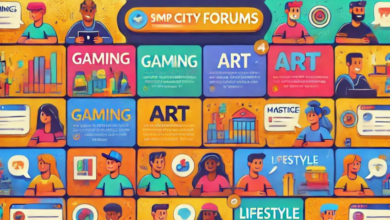Essential Features of TechSSLash 1 for Enhanced Security

Table of Contents
In today’s fast-paced world, technology continues to advance at an unprecedented rate, influencing every aspect of our lives. From artificial intelligence and quantum computing to biotechnology and sustainable energy solutions, the innovations on the horizon promise to revolutionize techsslash industries, improve our quality of life, and address some of the most pressing challenges facing humanity. Here, we explore some of the most transformative technologies poised to shape the future.
Artificial Intelligence and techsslash
Artificial intelligence (AI) and machine learning (ML) are at the forefront of technological innovation. These technologies enable machines to learn from data techsslash, make decisions, and even perform tasks that traditionally required human intelligence. Applications of AI and ML are vast, ranging from healthcare, where they assist in diagnosing diseases, to finance, where they optimize trading strategies. As AI continues to evolve, ethical considerations and the need for robust governance frameworks will be crucial to ensure these technologies benefit society.Techsslash
Quantum Computing
Quantum computing represents a paradigm shift in computational power. Unlike classical computers, which process information in bits, quantum computers use qubits, allowing them to perform complex calculations exponentially faster. This breakthrough has the potential to revolutionize fields such as cryptography, material science, and drug discovery. While practical, large-scale quantum computers are still in development, the progress made thus far suggests a future where computational limitations are significantly diminished.
Biotechnology and Genetic Engineering techsslash
Techsslash Advancements in biotechnology and genetic engineering are opening new frontiers in medicine and agriculture. CRISPR-Cas9 techsslash, a revolutionary gene-editing technology, allows scientists to precisely alter DNA, offering potential cures for genetic disorders and the creation of disease-resistant crops. Personalized medicine, where treatments are tailored to an individual’s genetic makeup, is becoming increasingly feasible, promising more effective and targeted therapies. techsslash
Sustainable Energy Solutions techsslash
The transition to sustainable energy is critical in addressing climate techsslash change and ensuring a stable future. Innovations in renewable energy technologies, such as solar, wind, and advanced battery storage, are making clean energy more accessible and affordable. Smart grids and energy-efficient systems are optimizing energy consumption, reducing waste, and integrating renewable sources into existing infrastructures. The development of new materials and technologies, such as perovskite solar cells and hydrogen fuel cells, holds promise for even greater efficiency and sustainability.
Internet of Things (IoT) and Smart Cities
The Internet of Things (IoT) is connecting everyday objects to the internet, creating a vast network of interconnected devices. This technology enables real-time data collection and analysis, improving efficiency and convenience in various sectors. Smart cities, leveraging IoT, aim to enhance urban living through intelligent transportation systems, energy-efficient buildings, and improved public services. By integrating technology into urban planning, smart cities can reduce environmental impact and improve the quality of life for their residents.
Extended Reality (XR)
Extended reality (XR), encompassing virtual reality (VR), augmented reality (AR), and mixed reality (MR), is transforming how we interact with digital content. These immersive technologies are finding applications beyond entertainment, such as in education, where they provide interactive learning experiences, and in healthcare, where they assist in surgical training and patient rehabilitation. As XR technology becomes more advanced and accessible, its potential to enhance various aspects of our lives continues to grow.
Conclusion
The future of technology holds immense promise, with innovations that have the potential to transform industries, solve global challenges, and improve our everyday lives. However, with great power comes great responsibility. It is essential to ensure that these technological advancements are developed and deployed ethically, sustainably, and inclusively. By embracing the opportunities and addressing the challenges, we can harness the full potential of technology to create a better future for all.
Artificial Intelligence: The Intelligent Frontier
Artificial Intelligence (AI) has transitioned from a futuristic concept to a pivotal part of our daily lives. From voice-activated assistants like Siri and Alexa to sophisticated algorithms that drive autonomous vehicles, AI’s impact is profound and growing. In healthcare, AI is revolutionizing diagnostics and personalized medicine, enabling quicker and more accurate detection of diseases. Meanwhile, industries such as finance, retail, and manufacturing are leveraging AI for predictive analytics, enhancing efficiency and decision-making processes.
Quantum Computing: Unlocking New Possibilities
Quantum computing promises to tackle problems beyond the reach of classical computers by harnessing the principles of quantum mechanics. This nascent technology could revolutionize fields requiring complex computations, such as cryptography, materials science, and pharmaceuticals. Quantum computers’ ability to process massive datasets and perform calculations at unprecedented speeds will enable breakthroughs in drug discovery and climate modeling, addressing some of humanity’s most significant challenges.
Biotechnology: Redefining Life Sciences
Advancements in biotechnology are transforming our approach to health and agriculture. Gene-editing technologies like CRISPR-Cas9 offer the potential to cure genetic disorders, create disease-resistant crops, and even combat pandemics. Personalized medicine, driven by an individual’s genetic profile, is becoming a reality, promising more effective and tailored treatments. These innovations are not only enhancing our understanding of biology but also paving the way for a healthier and more sustainable future.
Renewable Energy: Powering a Sustainable Future
The shift towards renewable energy is imperative for combating climate change and ensuring long-term sustainability. Innovations in solar and wind technologies, coupled with advancements in energy storage solutions, are making renewable energy more efficient and accessible. The development of smart grids and energy-efficient systems is optimizing energy distribution and consumption, significantly reducing our carbon footprint. Emerging technologies like hydrogen fuel cells and advanced nuclear reactors hold promise for further diversifying our clean energy portfolio.
Internet of Things (IoT): Connecting the World
The Internet of Things (IoT) is creating a seamlessly connected world where everyday objects are embedded with sensors and communication capabilities. This interconnected ecosystem enhances efficiency across various domains, from smart homes and wearable devices to industrial automation and smart cities. IoT technology is driving innovation in urban planning, enabling intelligent transportation systems, energy management, and improved public safety, thereby enhancing the quality of urban life.
Extended Reality (XR): Beyond the Physical Realm
Extended Reality (XR), encompassing Virtual Reality (VR), Augmented Reality (AR), and Mixed Reality (MR), is transforming the way we experience the digital and physical worlds. XR is finding applications in diverse fields such as education, where it provides immersive learning experiences, and in healthcare, where it aids in surgical training and therapy. The entertainment industry is also leveraging XR to create more engaging and interactive experiences. As XR technologies advance, their potential to enrich our daily lives and professional environments continues to expand.



